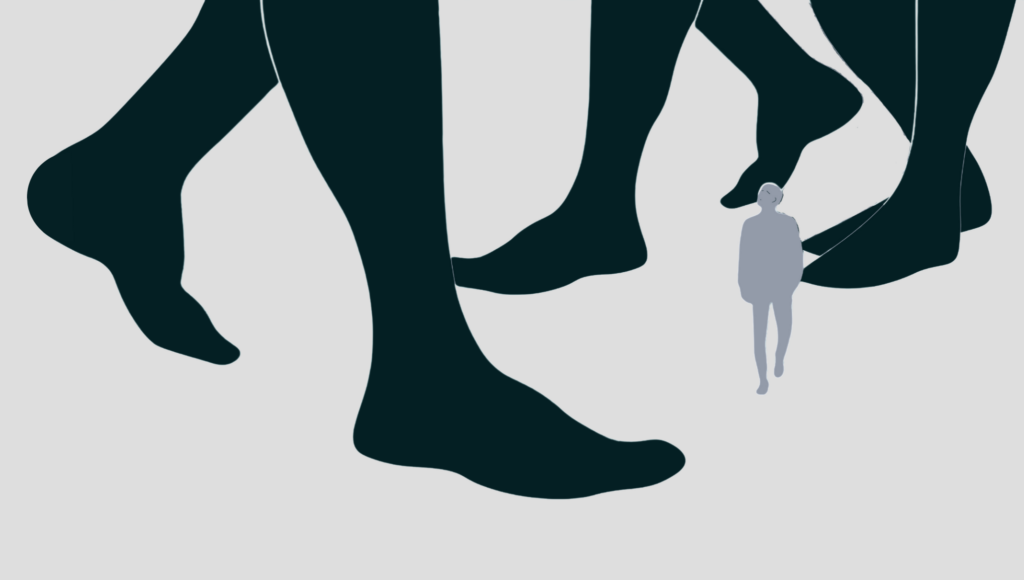Data guards threaten the journalist project “Hot Feet” with fines.
Under the pretext of personal data, relying on the General Data Protection Regulation (GDPR), which is becoming an antonym for transparency, the State Data Protection Inspectorate (SDPI) continues to obstruct journalists in fulfilling their duty to protect the public interest and the public’s right to know. Now its target is the journalistic project “Hot Feet”.
Data guards fight against transparency
Data guards threaten the journalist project "Hot Feet" with fines. Under the pretext of personal data, relying on the General Data Protection Regulation (GDPR), which is becoming an antonym for transparency, the State Data Protection Inspectorate (SDPI) continues to obstruct journalists in fulfilling their duty to protect the public interest and the public's right to know. Now its target is the journalistic project "Hot Feet".
“Hot Feet” is a public initiative that brought together publicly available data on politicians and high-ranking civil servants, their relations with public funds. This tool was developed to facilitate the work of journalists in investigating potential conflicts of interest. The European Commission, by funding the tool, sought to strengthen democracy and freedom of the press.
Although the Law on the Legal Protection of Personal Data (Article 7 (1) and (2)) does not authorize the SDPIto inspect this transparency initiative, its implementers have been involved in correspondence which lasted for more than a year and culminated in the Inspectorate’s proposal to impose a fine.
“We see this activity of a state institution, that should take care of data protection and not protect the possibly secret contacts of officials revealed by journalists, as a consistent pressure to close this journalistic database. We are convinced that SDPI goes beyond its competence,” says Neringa Jurčiukonytė, project manager of “Hot Feet” and founder of Media4Change.
The initiators of the project experienced that even the institutions, obliged by law, today choose an easier way – simply to deny the public access to so-called public data, while the policy of data opening can remain only a declarative provision in Lithuania.

“We feel obliged to make every effort to ensure that this case helps to prevent the use of the GDPR as a pretext for restricting journalists’ access to information of public importance,” says N. Jurčiukonytė.
Data guards ignore the journalistic nature of the project. They are making excessive demands, even refusing to listen to the position of the Office of the Inspector of Journalistic Ethics and the Lithuanian Union of Journalists (LUJ). The inspectorate’s instructions to the authors of the project include, for example, providing information on contracts for the use of public data for journalistic purposes, questions about whether public persons are informed about the public data they use, etc. In this way, GDPR is once again used as a cover for potential conflicts of interest, the creators of “Hot Feet” are convinced.
The project “Hot Feet” started in the fall of 2020. The initiative, funded by the European Commission, has combined into a single database the declarations of interest of politicians and officials, the statistic of European Union’s investments and public procurements. In this way, the “Hot Feet” platform allowed journalists, members of the public and ordinary citizens to independently examine the contacts of public figures, to identify the possible cases of non-transparent use of funds, nepotism, or corruption.
Billions of euros in public sector spending and thousands of declarations of interest combined into a single, user-friendly system. This is the first transparency project of this kind and scope in Lithuania. However, from the very beginning, the project received the attention and requirements of the State Data Protection Inspectorate for clarifications.

According to the Law on the Legal Protection of Personal Data, journalistic projects related to personal data are supervised by the Office of the Inspector of Journalistic Ethics. This authority confirmed in writing that “Hot Feet” is a journalistic project with relevant exemptions from the GDPR. The Data Protection Inspectorate has chosen to ignore this fact.
On Thursday, at 2 pm, a public hearing will be held at the premises of the SDPI, during which the Data Protection Inspectorate plans to impose a fine on the project developers for alleged violations.
“The imposition of a fine would mean the destruction of the “Hot Feet” but it is not just about this project. The actions of the State Data Protection Inspectorate would set a precedent that would prevent other transparency-oriented open data initiatives. In our opinion, this is a direct and malicious action against increasing transparency in the state and even against the same GDPR, which clearly defines that data protection must be proportionated with freedom of information,” says Šarūnas Černiauskas, the author of the “Hot Feet” and the head of the investigative journalism center “Siena”.
The “Hot Feet” team requested to invite the representatives of the Office of the Inspector of Journalistic Ethics and the Lithuanian Union of Journalists to the meeting but the SDPI informed in writing that representatives of these institutions will not be invited. The chairman of the LUJ Dainius Radzevičius plans to participate in the meeting, although the Inspectorate refused to invite him.

Representatives of the media and members of the public who are not indifferent to transparency are invited to attend the meeting, which will take place on Thursday, January 27, at 2 pm, at the premises of SDPI (L. Sapiegos St. 17, Vilnius).
Before the meeting at 13.30, the comments on the situation of the “Hot Feet” and GDPR and its use against the media and the public will be shared by:
- The author of the idea of ”Hot Feet” Šarūnas Černiauskas
- Lawyer of the Linden Law Firm, Consultant of Media4Change, Marius Dagys
- Chairman of the Union of Journalists Dainius Radzevičius
Ready to comment on the situation:
- Andrius Šuminas, Associate Professor, Doctor, Chairman of the Media Council
The initiators and authors of the project will invite colleagues and public members, seeking the greatest possible freedom of publicity, to sign an appeal to the authorities for a wide-ranging discussion on what the GDPR is for – the protection of data or the concealment of officials’ connections.
The initiators and authors of the project will invite colleagues and public members, seeking the greatest possible freedom of publicity, to sign an appeal to the authorities for a wide-ranging discussion on what the GDPR is for – the protection of data or the concealment of officials’ connections.


